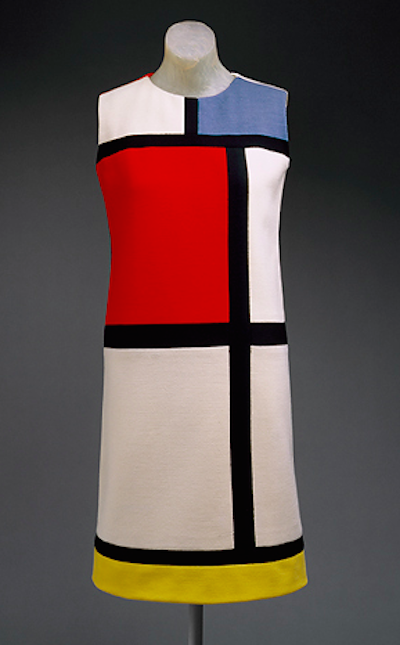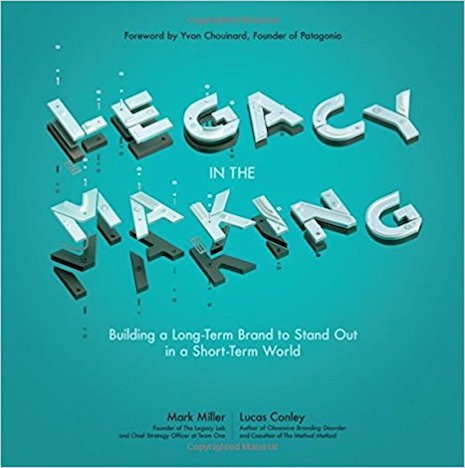 For luxury brands, building a legacy is important. Image credit: Lexus
For luxury brands, building a legacy is important. Image credit: Lexus
NEW YORK – To build a brand that will stand the test of time, little decisions and short-term effects are important, but not as much as establishing a long-term identity.
In a new book, called "Legacy in the Making," authors Mark Miller and Lucas Conley lay out strategies for brands to build long-lasting legacies, something that is particularly relevant for luxury brands. At an event hosted by Team One in New York on April 26, the two authors spoke about how numerous brands they spoke to were aware of this problem.
"By 2012, at the time we began our research, Lexus had already done so much, but BMW and Mercedes had been around for so long," said Mr. Miller, chief strategy officer at Team One and founder of The Legacy Lab. "Lexus thought that going on 25 was too young.”
"The Ritz-Carlton told us the opposite," he said. "In the hotel industry, to be young and new was better.
"These are two successful luxury brands who were questioning their place in history."
Legacy brands
Building a brand in today’s world is not easy, particularly in luxury.
Many of the biggest names in luxury have been around for decades, if not more than a century. While a new brand could have every advantage, they will never have the age and subsequent pedigree that comes from strong legacy.
But what they can do is build a legacy for the future. Mr. Miller and Mr. Conley cited Lexus as a brand that is not nearly as old as some of its counterparts in luxury automotive. Despite this, Lexus is looking toward the future and not dwelling on the thing it cannot change: its age.
Part of that is looking at things in the long-term. Mr. Conley likened it to his experience in the journalism world.
Yves Saint Laurent's Mondrian collection dress, fall/winter 1966
For many publications, an overwhelming focus on traffic has led to short-term gains but also long-term losses. As publications sacrifice creating long-form quality journalism in favor of empty but highly clickable content, they also drive up traffic but end up losing loyal readers for the future.
"When I started my journalism career, I started at The Atlantic," said Mr. Conley, journalist and writer with The Legacy Lab. "They invested deeply in stories; they didn’t care about trends.
"I worked on a story called 'The Unbuilding of the World Trade Center,' a huge story that became a book. Coming out of that experience, I knew they were investing in the long run."
Brand building
The aforementioned Lexus has looked to make its legacy concrete by investing in the future of automotive design.
Lexus parent company Toyota Corporation is looking to make driving safer by allowing its vehicles to communicate with other cars and infrastructure.
From 2021, Toyota and Lexus will begin equipping models in the United States with Dedicated Short-Range Communications (DRSC) technology, which can help prevent collisions and give drivers a heads up about upcoming road conditions. Toyota sees DRSC as a means of advancing both connected and autonomous driving, two areas seeing significant focus among automakers (see story).
Legacy in the Making by Mark Miller and Lucas Conley. Image credit: McGraw Hill
Older luxury brands, such as Yves Saint Laurent, have looked to museums to help cement their image as a legacy brand and an indelible part of history. Yves Saint Laurent is the subject of two museums, one in Paris and another in Marrakech, Morocco, cities in which the late fashion designer split his time.
Both the Paris and Marrakech museums were recently opened by the Fondation Pierre Bergé, founded in 2004 to preserve the fashion house and Mr. Saint Laurent’s legacy. The Fondation Pierre Bergé was established by Pierre Bergé, Mr. Saint Laurent’s longtime partner and co-founder of the Yves Saint Laurent Couture House, which gives a personal and authentic connection to the designer and subsequent museums (see story).
"There are brands who make statements about the one thing they did exceptionally and they do it all the time," Mr. Miller said. "'Stick with us because we did one thing really nice.'
"But a remarkable brand says they want to make history every day."


